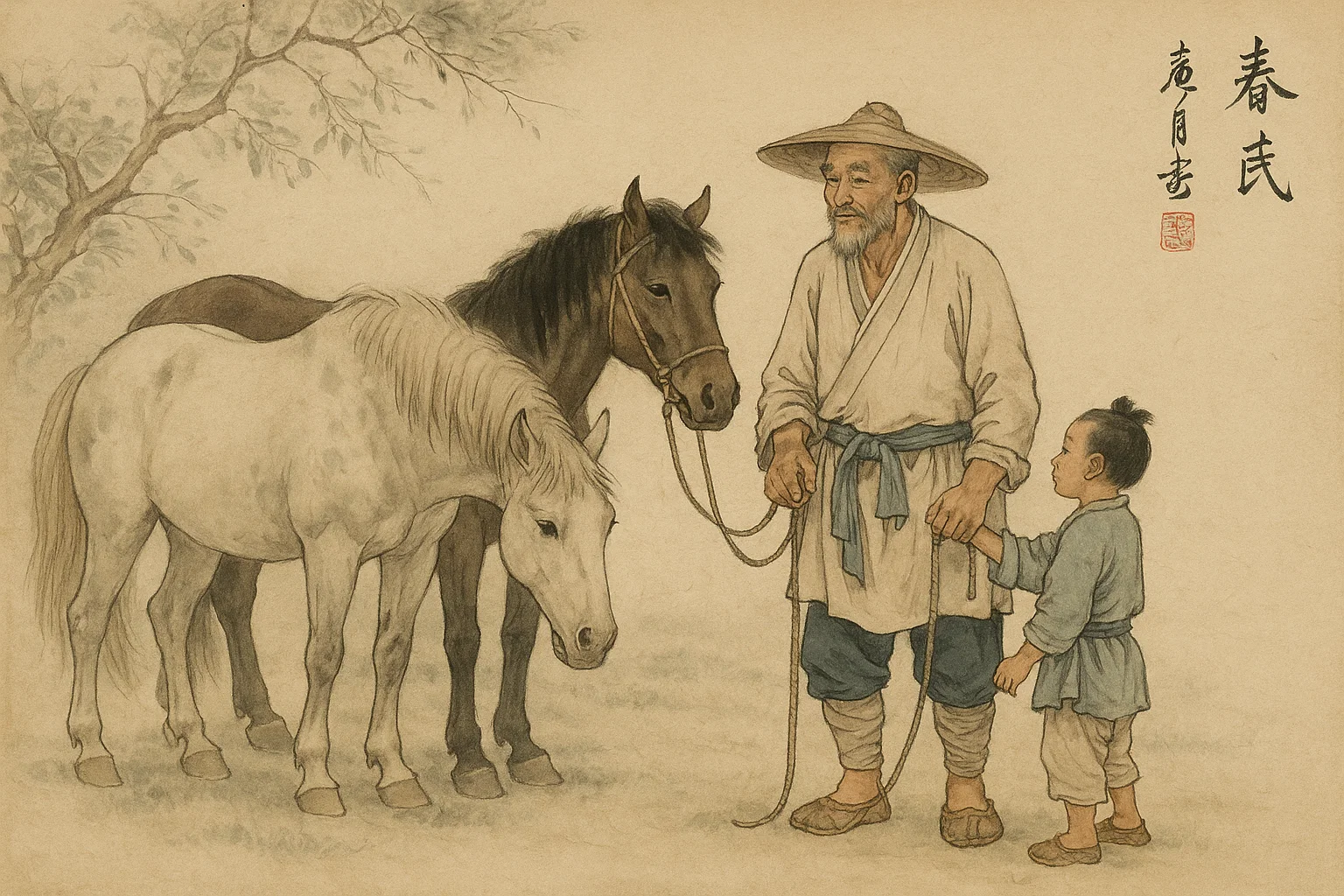Here’s the Story of the Chinese Farmer, which is an old Taoist parable often attributed to the philosopher Lao Tzu (though its exact origin is unknown). It beautifully illustrates the idea that events in life are neither inherently “good” nor “bad,” but depend on how things unfold over time.
🌾 The Story of the Chinese Farmer
Once upon a time, there was a farmer in a small village in China.
One day, his only horse ran away.
The neighbors came to sympathize:
“Oh no! How unlucky!”
The farmer simply replied:
“Maybe.”
The next day, the horse returned — and brought with it several wild horses.
The neighbors cheered:
“Wow! How fortunate!”
The farmer said:
“Maybe.”
The following day, while trying to tame one of the wild horses, the farmer’s son fell and broke his leg.
The neighbors lamented:
“Oh no! Such bad luck!”
The farmer only said:
“Maybe.”
A week later, the emperor’s army came to the village, conscripting all able-bodied young men for war.
When they saw the farmer’s son with his broken leg, they left him behind.
The neighbors exclaimed:
“How lucky you are!”
The farmer, once again, replied:
“Maybe.”
🧠 Moral of the Story
This parable teaches that events are neither good nor bad in themselves — they are part of a larger chain of cause and effect we cannot foresee. What looks like misfortune today may turn out to be a blessing tomorrow, and vice versa.
It’s about acceptance, patience, and detachment from rigid judgment, which is a very Taoist way of seeing life.
From a Taoist perspective, true harmony does not come from forceful striving but from aligning with the natural flow of existence. This principle is embodied in wu wei (無為), often misunderstood as mere passivity. In reality, wu wei is an active state of effortless alignment, where one moves in concert with the Tao rather than against it. Instead of imposing control, the Taoist sage observes the patterns of life and allows action to emerge organically. In this way, effort is not eliminated but refined—like a river that shapes the land not by resistance but by persistence and flow.
In this context, every challenge and transition can be viewed not as an obstacle to be conquered but as an invitation to realign. When we act from wu wei, we stop clinging to rigid plans or expectations and instead cultivate a quiet trust in the underlying order of the Tao. This is not resignation but deep participation in reality as it unfolds. Even moments of apparent stillness hold movement within them, just as winter holds the promise of spring. Through this lens, what seems like “doing nothing” is in fact a subtle form of doing—one that is so perfectly attuned to the Tao that no friction remains.
By practicing wu wei, we begin to see that the most profound transformations often occur without deliberate force. A single shift in awareness can dissolve the illusion of separation between the self and the world, revealing that the Tao has been carrying us all along. This effortless merging allows life to unfold with an ease that transcends striving, bringing not only serenity but also a quiet strength rooted in harmony. In embracing this flow, we step out of the narrow confines of control and into the boundless expanse of the Way—where being and doing, self and Tao, are no longer two.
